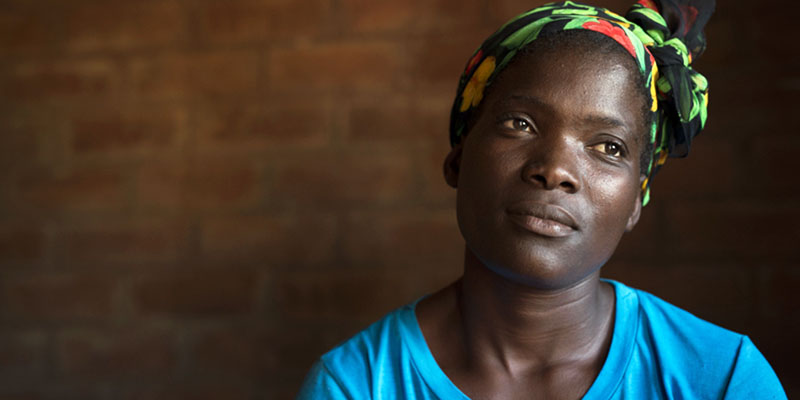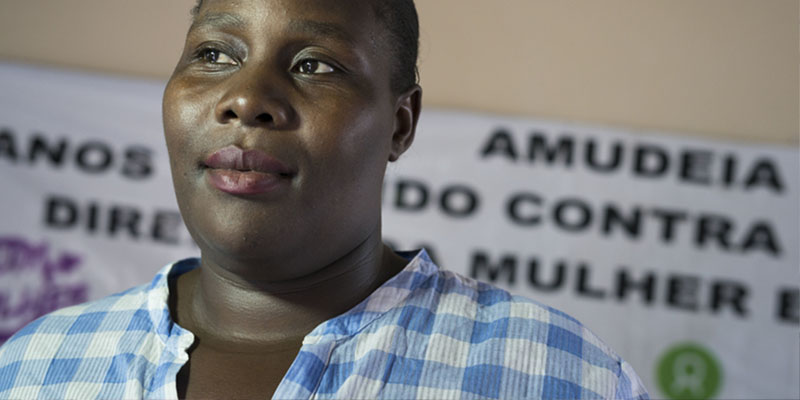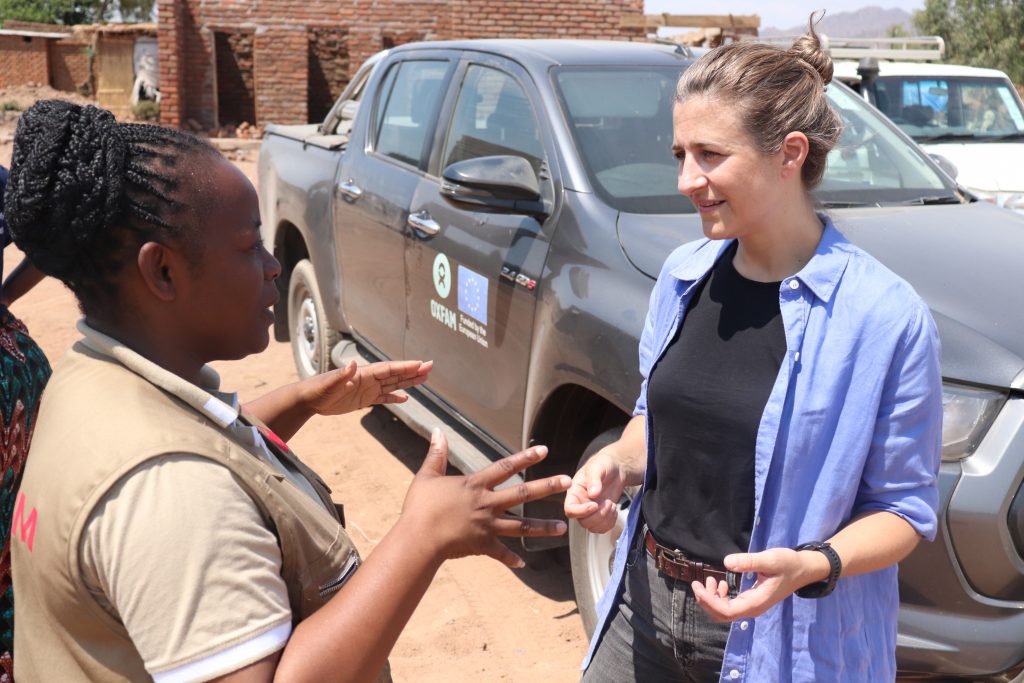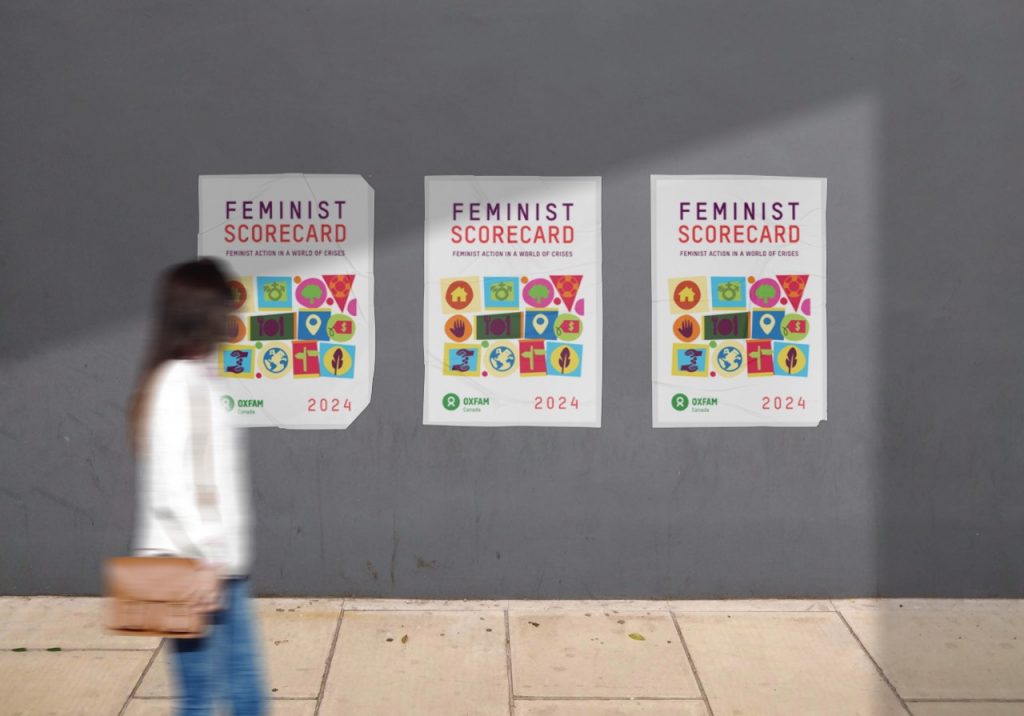Women’s rights: Changing laws, changing minds
Gender inequality is the most serious and pervasive form of discrimination in the world. While this affects everyone, it is women and girls who face the most discrimination as a result of gender inequality.
We believe that transforming gender and power relations and the structures, norms and values that underpin them, is critical to ending poverty and challenging inequality.
Oxfam and our partners are strengthening the laws that protect the basic rights of women and girls.
This collection of stories features examples of Oxfam’s work on gender rights and protection to end violence, abuse, and exploitation against women and girls.
Hanoi – Empowering Local Leaders
An Oxfam Aid Hero. Phạm Thị Hậu, 37, lives in Hanoi with her daughter, Pham Thao Linh. As a street vendor who sells brooms, Hau spends long days on the streets of Hanoi to make a living to support her family.
Hâu has become a local leader among other women vendors after participating in the Oxfam-funded STONES project, which teaches street vendors about their rights and how to raise their voices to help others. Managed locally by the non-profit Institute for Development & Community Health–LIGHT, the project has reached 4,000 women.
Hâu started volunteering as a peer educator and she now runs self-help and other group meetings. She also speaks out as an advocate with government representatives at all levels. Hâu and 35 other local leaders are responsible for disseminating information to their own self-help groups. This not only helps LIGHT reach its goals, but allows the women to continually build their skills and self-confidence.
Mozambique – Changing Family Laws

“I realized violent confrontation is not good. Now I am feeling like I am leading a better life than before.”
– Virginia Machuene
Virginia Machuene, 34, is a survivor of domestic violence. She fought a lot with her husband, and he was frequently physically violent. She attended community dialogue meetings at Nweti (an NGO working to end violence in Mozambique) where she learned how to defuse these violent encounters, and gathered reading materials for her husband that helped him change his behavior.
Oxfam has been working on decreasing domestic and gender-based violence by funding organizations like Nweti for years, and helping push for new laws designed to promote and protect women’s rights.
The pace of change may feel slow for people dealing with violence and discrimination against women on a daily basis. Dulce Narciso was trained by Oxfam to become a paralegal advisor for women in Mozambique. Narciso now coordinates a domestic violence prevention program just north of Maputo.

“When laws are enforced, we see progress,” says Narciso. “When we can raise awareness about the Domestic Violence Law, it’s positive. But the work is slow and difficult.”
“Domestic violence won’t stop overnight. To change things we need to keep teaching people in the community, we need to keep reaching out”
Niger – Ending Child Marriage

Ramatou Inoussa, 19, and her 2-year-old child Oumarou live in her grandmother’s home. Both her parents died when she was young, and she married an older man at the age of 13. Ramatou never had the opportunity to attend school.
“On a normal day I clean the house and sometimes I earn some money as a cleaning lady.” – Ramatou Inoussa
After five years of violent marriage, Ramatou’s husband left her to care for her child on her own.
Her story is not uncommon. Each year, 15 million girls are married before the age of 18. Most of these girls are deprived of their fundamental human rights to health, education, safety, and bodily integrity.
Child brides are at greater risk of suffering from maternal death and dangerous complications in pregnancy and childbirth as well as from domestic violence and sexual abuse. In addition, most girls are forced to terminate their education after marriage. With limited access to education and economic opportunities, child brides and their families are more likely to live in poverty.
Oxfam is working to ensure that young people, especially girls, are able to decide if and when to marry, and empowering them to pursue their sexual and reproductive health and rights. As part of the “More than Brides Alliance,” a 5 year program, Oxfam aims to reduce child marriage and its adverse effects on young women and girls in India, Pakistan, Malawi, Niger, and Mali.

